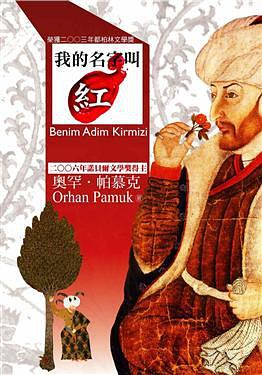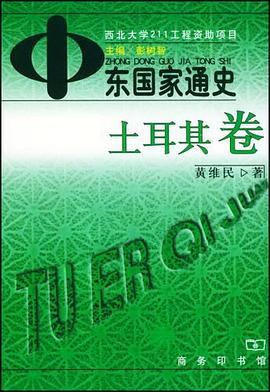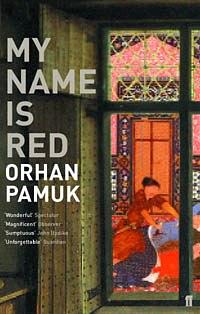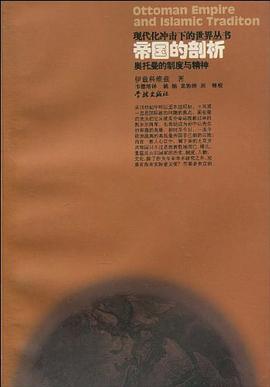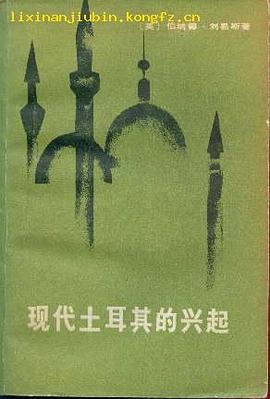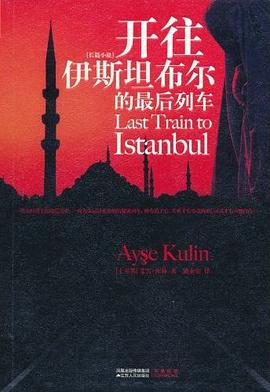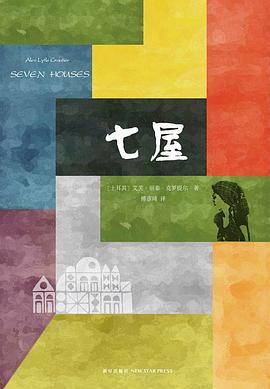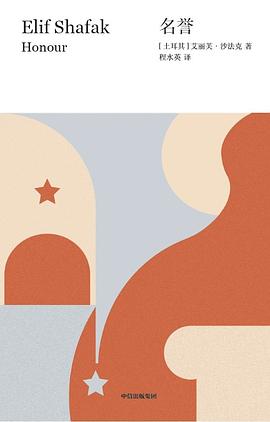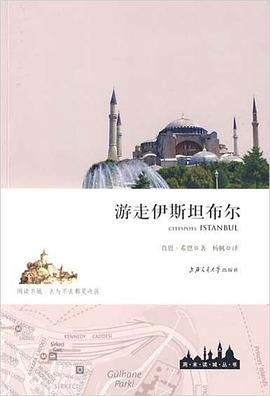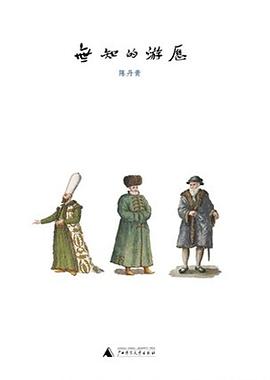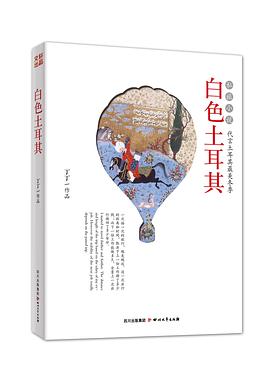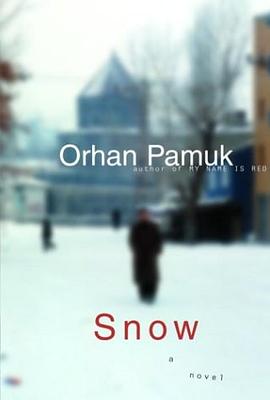

具体描述
From the acclaimed author of My Name Is Red (“a sumptuous thriller”–John Updike; “chockful of sublimity and sin”– New York Times Book Review ), comes a spellbinding tale of disparate yearnings–for love, art, power, and God–set in a remote Turkish town, where stirrings of political Islamism threaten to unravel the secular order.
Following years of lonely political exile in Western Europe, Ka, a middle-aged poet, returns to Istanbul to attend his mother’s funeral. Only partly recognizing this place of his cultured, middle-class youth, he is even more disoriented by news of strange events in the wider country: a wave of suicides among girls forbidden to wear their head scarves at school. An apparent thaw of his writer’s curiosity–a frozen sea these many years–leads him to Kars, a far-off town near the Russian border and the epicenter of the suicides.
No sooner has he arrived, however, than we discover that Ka’s motivations are not purely journalistic; for in Kars, once a province of Ottoman and then Russian glory, now a cultural gray-zone of poverty and paralysis, there is also Ipek, a radiant friend of Ka’s youth, lately divorced, whom he has never forgotten. As a snowstorm, the fiercest in memory, descends on the town and seals it off from the modern, westernized world that has always been Ka’s frame of reference, he finds himself drawn in unexpected directions: not only headlong toward the unknowable Ipek and the desperate hope for love–or at least a wife–that she embodies, but also into the maelstrom of a military coup staged to restrain the local Islamist radicals, and even toward God, whose existence Ka has never before allowed himself to contemplate. In this surreal confluence of emotion and spectacle, Ka begins to tap his dormant creative powers, producing poem after poem in untimely, irresistible bursts of inspiration. But not until the snows have melted and the political violence has run its bloody course will Ka discover the fate of his bid to seize a last chance for happiness.
Blending profound sympathy and mischievous wit, Snow illuminates the contradictions gripping the individual and collective heart in many parts of the Muslim world. But even more, by its narrative brilliance and comprehension of the needs and duties
作者简介
奥尔罕·帕慕克(Orhan Pamuk, 1952- ),当代欧洲最杰出的小说家之一,享誉国际的土耳其文学巨擘。出生于伊斯坦布尔,曾在伊斯坦布尔科技技大学主修建筑。2006年获诺贝文学奖,作品已经被译为40多种语言出版。
目录信息
读后感
译自2004年8月15日《纽约时报书评周刊》 本文作者为加拿大女作家玛格丽特·阿特伍德(《可以吃的女人》,《盲刺客》) 土耳其作家奥罕·帕慕克的第七本小说不仅是一次引人入胜的叙事表演,而且是我们这时代不可或缺的读物。 在土耳其,帕慕克等同于摇滚明星、精神导师、诊断专...
评分翻译大概又是一砣便。怎么格调稍微压抑点的书都被国内的翻译者搞成这个调性,看起来根本没有原作者的痕迹或者特点,没劲,没劲。但是看了开头,强迫症就是会让人把即使是一坨屎的东西也看完。 这个版本还有错别字
评分译自2004年8月15日《纽约时报书评周刊》 本文作者为加拿大女作家玛格丽特·阿特伍德(《可以吃的女人》,《盲刺客》) 土耳其作家奥罕·帕慕克的第七本小说不仅是一次引人入胜的叙事表演,而且是我们这时代不可或缺的读物。 在土耳其,帕慕克等同于摇滚明星、精神导师、诊断专...
评分这是我读过的第四本帕穆克作品,之前是两本小说:《我的名字叫红》和《白色城堡》和一本non-fiction:《伊斯坦布尔》。我很喜欢这本《雪》,以及《我的名字叫红》和《伊斯坦布尔》,因为它们很对我的胃口。在这些作品中,帕穆克构建的是一群宏大的叙事结构,人物众多,情节复杂...
评分我一直在想象真正的生活。想象自己在扮演一出戏,剧里的主角不是自己,他的每一个举动都值得关注,他的每一个决定都有一个戏剧性的后果。哪怕他不是最终重逢凶化吉、以喜剧收场,他的悲剧总是被赋予意义。 但我们终归知道,至少在这一点上,生活远比肥皂剧无趣。很多时候,我...
用户评价
坦白说,我一开始是被那封面设计吸引的,极简主义,却蕴含着某种难以言喻的张力。拿到书后,我带着一种审慎的态度开始阅读,毕竟“大师之作”的宣传语听得太多了,很容易让人产生免疫。然而,这本书的文笔,却有着一种古典的韵味和现代的锐利感完美结合的奇特质地。作者的遣词造句极其考究,即便是描述日常的对话,也充满了潜台词和微妙的张力。它不像某些当代小说那样追求快速的感官刺激,而是更像一位技艺精湛的工匠,慢条斯理地打磨着每一个句子,让它们在光线下折射出不同的意味。读到中段,我发现自己开始不自觉地模仿作者的叙事停顿,甚至开始留意自己呼吸的节奏是否与书中角色的心跳同步。这是一种极具沉浸感的阅读体验,它不强迫你得出结论,而是让你在字里行间自己去构建意义的迷宫。对于追求文学深度和语言美感的读者来说,这无疑是一场盛宴。
评分这部作品简直是本年度最大的惊喜!我本以为会看到一部情节老套、人物扁平的传统惊悚小说,毕竟书名听起来就带着某种刻板印象。但事实是,作者以一种近乎外科手术般的精准,剖开了人性的幽暗角落。故事的节奏把握得令人窒息,你以为你已经猜到了接下来的转折,但作者总能在你放松警惕的瞬间,抛出一个更具颠覆性的真相。我尤其欣赏作者对环境细节的描摹,那些冷硬的都市线条、潮湿的地下室气味,都仿佛触手可及,深深地将读者裹挟进那个密不透风的叙事空间里。更别提那些配角,每一个都鲜活得像是从我们身边走出来的,他们动机的复杂性,远超出了传统类型小说中“好人”与“坏蛋”的简单二元对立。我花了整整一个通宵才读完,结束后久久无法平复,那种被情节推着走,却又在关键时刻被角色选择所震撼的感觉,实在太酣畅淋漓了。这绝不是一部可以轻松翻阅的读物,它要求你全身心投入,但回报是巨大的阅读满足感。
评分这是一部挑战阅读习惯的作品,我必须承认,前五十章读起来颇有些吃力。它没有提供一个清晰的指引,仿佛作者故意设置了层层迷雾,让读者在信息匮乏中挣扎摸索。很多时候,我需要停下来,合上书,在脑海中重构刚刚读到的片段,试图理清时间线和人物之间的微妙联系。但正是在这种“受挫”的过程中,那种豁然开朗的快感才显得如此珍贵。一旦你掌握了作者设定的某种“暗语”或“逻辑框架”,整个故事的骨架便会清晰地呈现在你面前,那种感觉就像是解锁了一个古老的密码。我尤其喜欢作者对“记忆”这一主题的处理,它不是线性回溯,而是碎片化的、充满主观色彩的重构,这让叙事本身成了一个动态的、不断变化的实体。对于那些厌倦了被喂食、渴望自己动手参与到意义建构过程中的读者,这本书绝对值得你投入时间去“破解”。
评分从技术层面上讲,这部作品的结构设计堪称教科书级别。作者巧妙地运用了多重叙事视角,并且在不同的时间维度之间进行了近乎无缝的跳跃,但每一次跳转都服务于整体情节的推进,绝无炫技之嫌。举例来说,其中有一段情节,通过三位不同人物在同一事件发生时,截然不同的主观体验来展现真相的相对性,这种处理方式极大地丰富了事件的层次感,让读者对“客观事实”产生了深刻的怀疑。我甚至翻回去对照了好几遍,才完全理解作者是如何布局这些看似不相关的线索,最终汇聚成一个令人信服的高潮。这不仅仅是一个引人入胜的故事,更是一次对叙事技巧的精湛展示。对于那些对写作艺术有兴趣,或者说,对故事是如何被精心构建起来的细节感兴趣的读者,这本书提供了一个绝佳的、近距离观察大师手法的机会。它让你在享受故事的同时,也在潜移默化地学习如何讲一个更复杂、更有层次感的故事。
评分我得说,这本书在情感光谱上的描绘达到了一个令人咋舌的高度。它没有刻意去煽情,没有冗余的泪水或歇斯底里的控诉,但那种深埋在角色骨子里的悲凉和宿命感,却像寒流一样渗透进来,让你不寒而栗。我最欣赏的一点是,作者对“选择的代价”进行了极其冷静而残酷的探讨。书中的每一个主要角色似乎都站在了人生的十字路口,他们做出的每一个决定,无论看起来多么微不足道,最终都像蝴蝶效应般引发了巨大的连锁反应。最可怕的是,这些角色并非全然无辜,他们都有着各自的灰色地带,这使得评判他们的行为变得极其困难。我们被迫站在一个道德的悬崖边上,看着他们一步步走向不可避免的结局。读完之后,我久久地在思考,如果站在他们的位置上,我又能做出怎样的选择?这已经超越了故事本身,变成了一场深刻的自我拷问。
评分讲土耳其面临的中西文化冲突,在挣扎中寻求个体自我、民族的定位。穿杂宗教、政治,以文学小说的形式描写政治,政治总是以宗教的旗号或非宗教的面目出现, 而牺牲的是无辜的戴或不戴头巾的伊斯兰教女性,看似是她们自己的选择---信或不信“God”,甚至以死来表明对神的衷心 ,实际上她们没有任何选择的自由。 “这个小镇, 女性选择自杀,男性投奔宗教”,而政治斗争,对权力的追求,是这一切的起源。
评分故事虽然不烂,但只是个幌子。 最大的收获还是通过Ka学到世俗以及各个宗教派系的纠葛。 飞机上飞快翻完了,下飞机没多久听说Erodogan修宪连任,真是。。。
评分放在上海了呢。。。这次去拿回来
评分城市风貌 政治时局 世俗与宗教的冲突 个人情感与诗歌创作的融合 帕慕克老师多线的功力依然令人叹服 不过言情线例行矫情了少给一星! - We're not stupid, we're just poor! And we have a right to want to insist on this distinction. 后面紧接一段对貌似平等实则PC的描写 真是不能再应景一些!
评分Impressive and ambitious. I spent more than one week reading this book, and the translation is very good. I love Pamuk's language and his tone of telling a story--it's curious. And i love the story itself very much.
相关图书
本站所有内容均为互联网搜索引擎提供的公开搜索信息,本站不存储任何数据与内容,任何内容与数据均与本站无关,如有需要请联系相关搜索引擎包括但不限于百度,google,bing,sogou 等
© 2026 book.wenda123.org All Rights Reserved. 图书目录大全 版权所有

